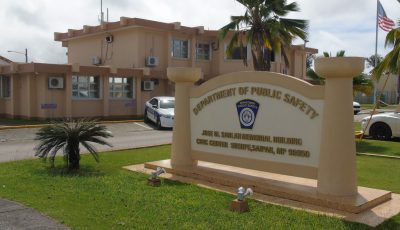DPS chief tackles morale issue
In a bid to fix the low morale issues that have long been a problem at the Department of Public Safety, Commissioner Clement Bermudes has implemented a new shift schedule that now allows DPS personnel to have more times with their families.
From three shift of 12 hours (minimum) each, DPS has now implemented four shifts, with each officer working eight hours (unless overtime is needed).
Bermudes said in an interview with local media outlets that one of the key factors contributing to low morale within the department was the unpredictable shift schedules that resulted in officers losing time with their families.
“Officers wanted time back. They want time to be with their families and to be with their community,” he said. “One way to address this issue was by establishing four different shifts. With this new schedule, all officers are given two full days off. Prior to the implementation of a new shift schedule, most officers were working three shifts at 12 hours minimum. Now, with four shifts, officers will only be working eight hours unless justified overtime is authorized.”
According to the transition report for DPS that was submitted last Jan. 3, it stated that the general disposition of DPS officers has been characterized by low morale, based on interviews conducted with DPS personnel.
Bermudes said that low morale is an indicator of burn out in police officers and he is trying his best to ensure that officers are given some time to step back from the department and their roles as officers.
“These people are humans too and low morale is one of those indicators that an individual is burnt out. We need to give our officers the time they need to reset, be individuals, be fathers, be mothers, be wives, be husbands, etc. That is what they value, and that is what I value. So now, I want to be very careful in how we work our officers because they are not machines. Again, they are human beings that also need to take a knee, seek help, etc. It’s a tough job. They’ve also been through a number of crises and some of them need to be given the opportunity to seek help,” he said.
In addition, Bermudes said he is also working on reassignments to put officers in units where they are most suited for.
“We are clearly and consciously reassigning people to units where they are qualified, or where they can be trained to qualify to serve in those capacities. The reassignments are not done on a whim, or by virtue of feeling, or by any animosity against any group or individuals. It is fair across and it is transparent,” Bermudes said.




























